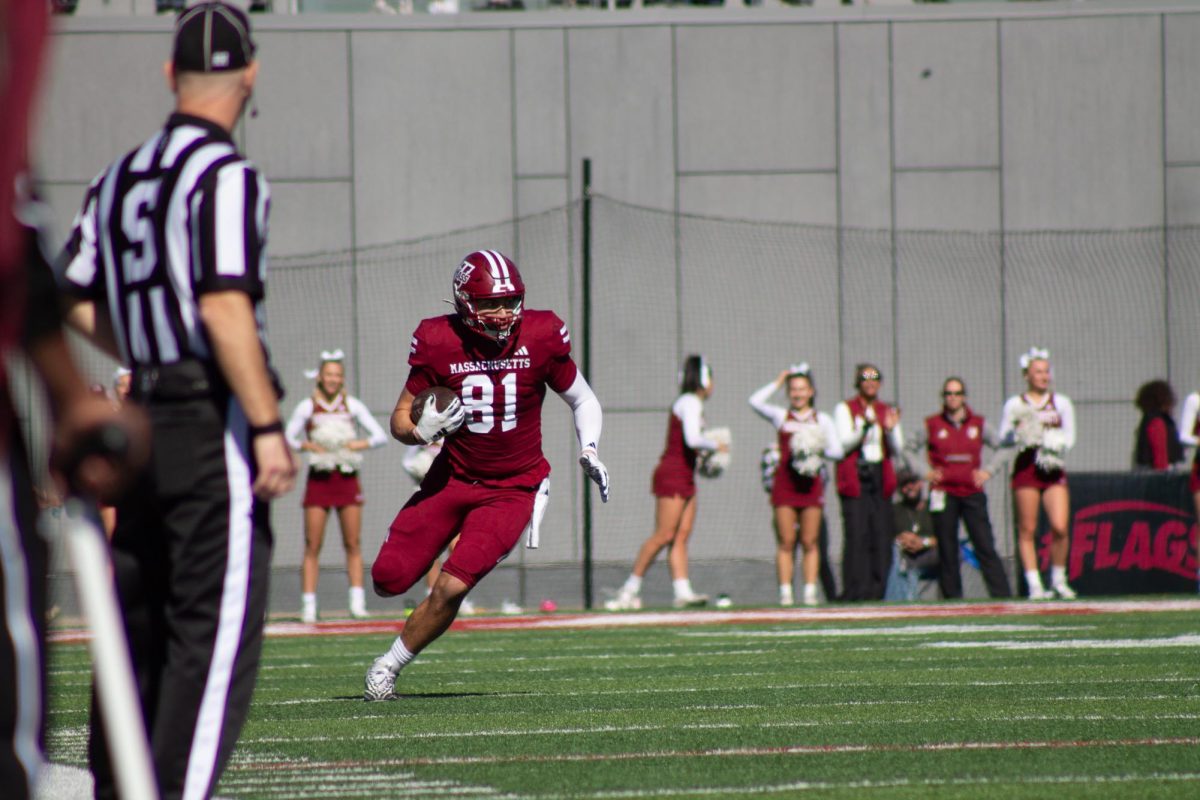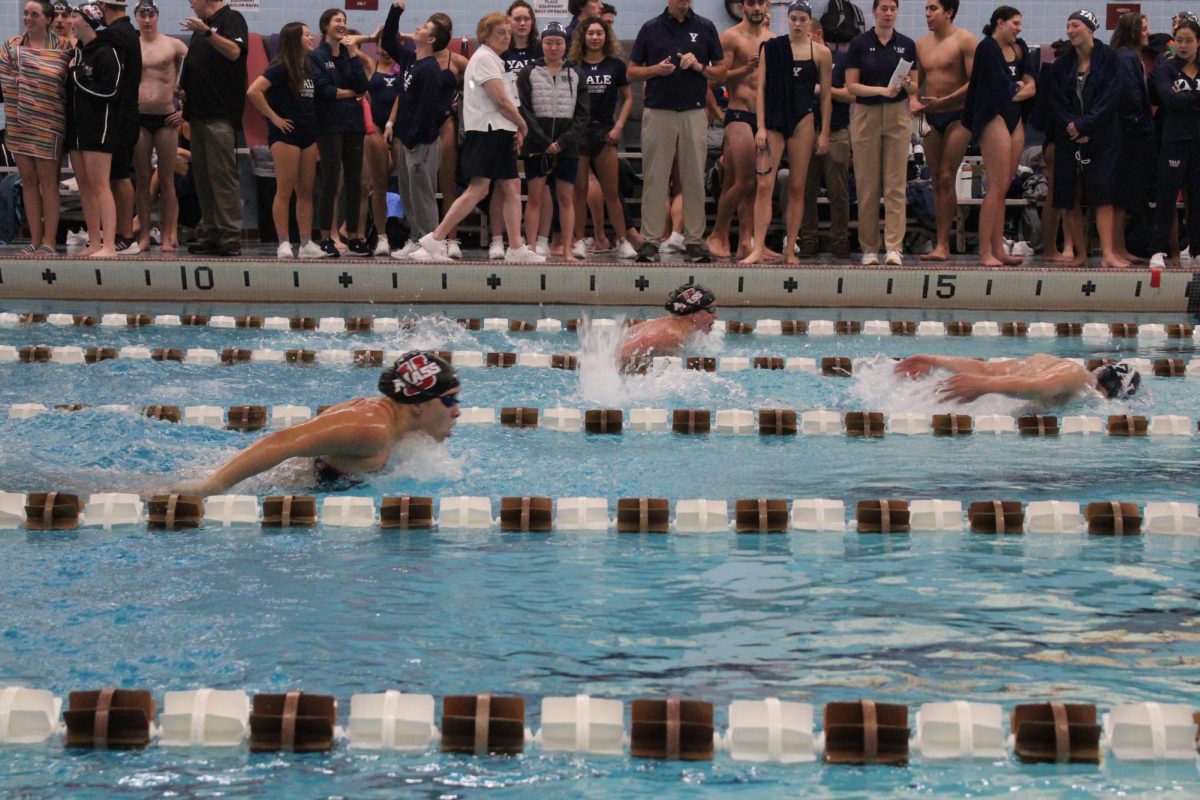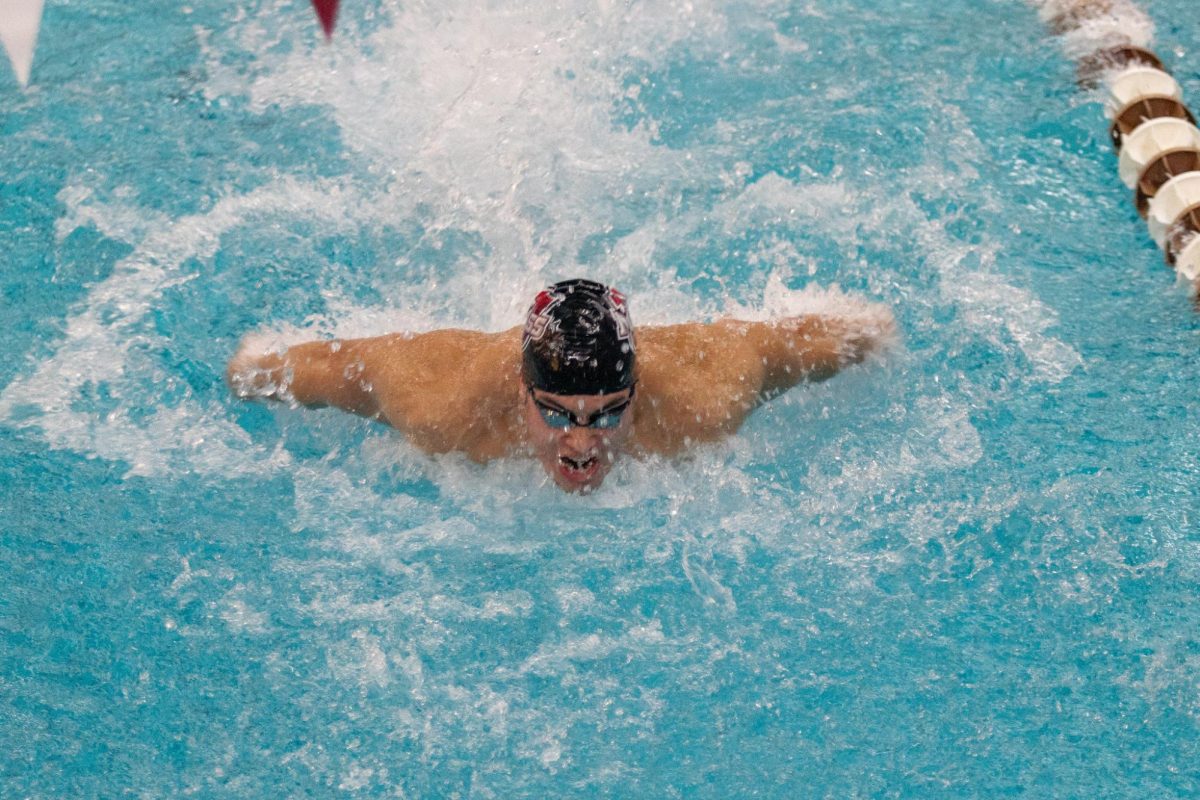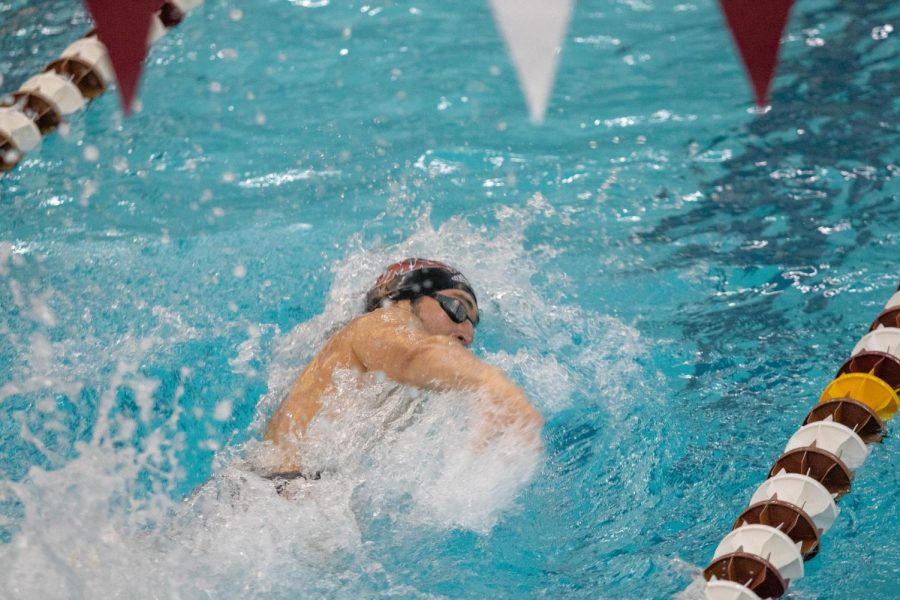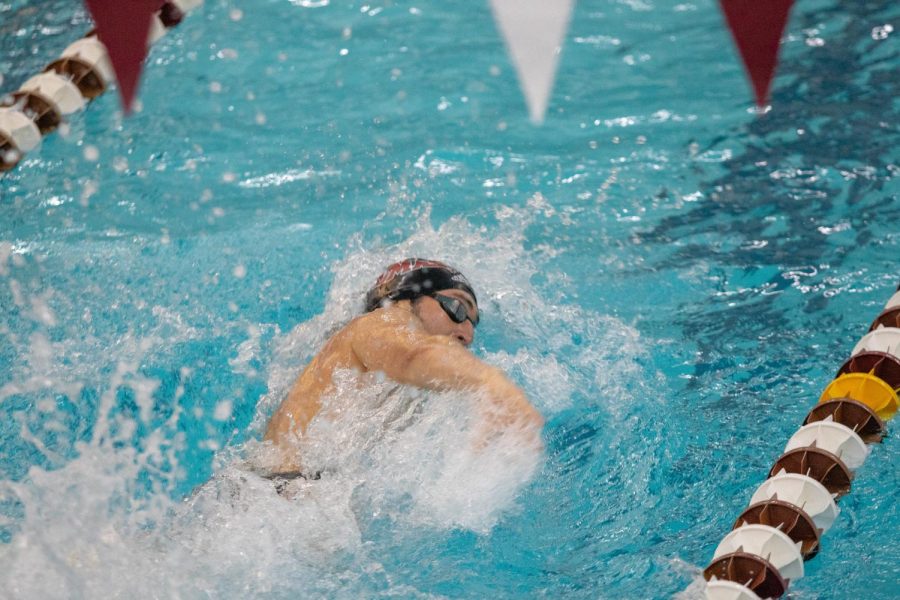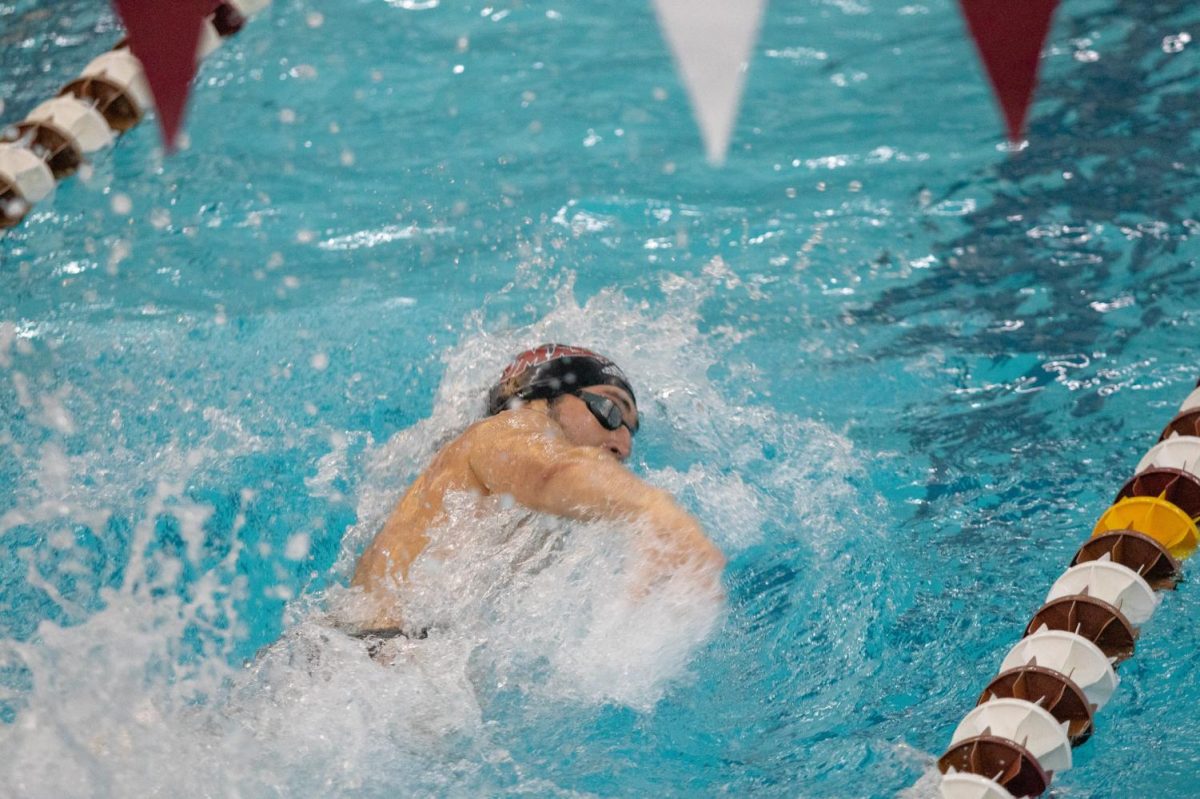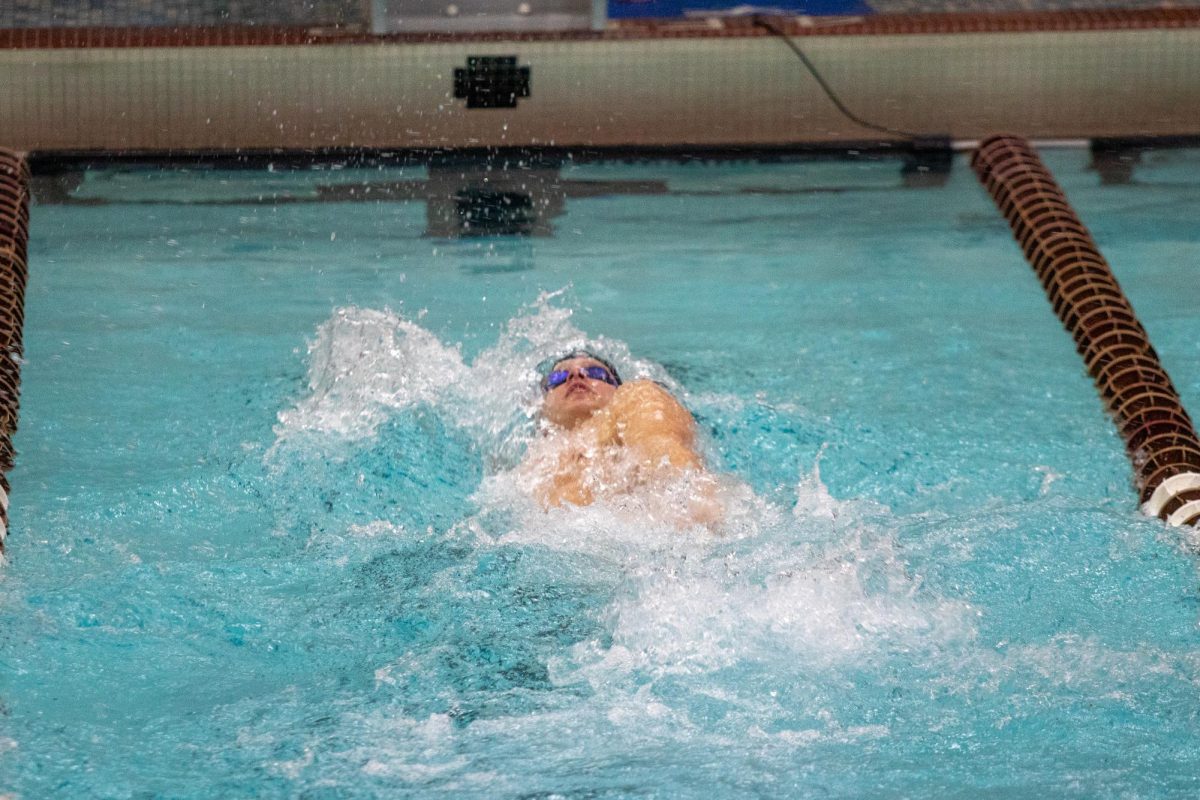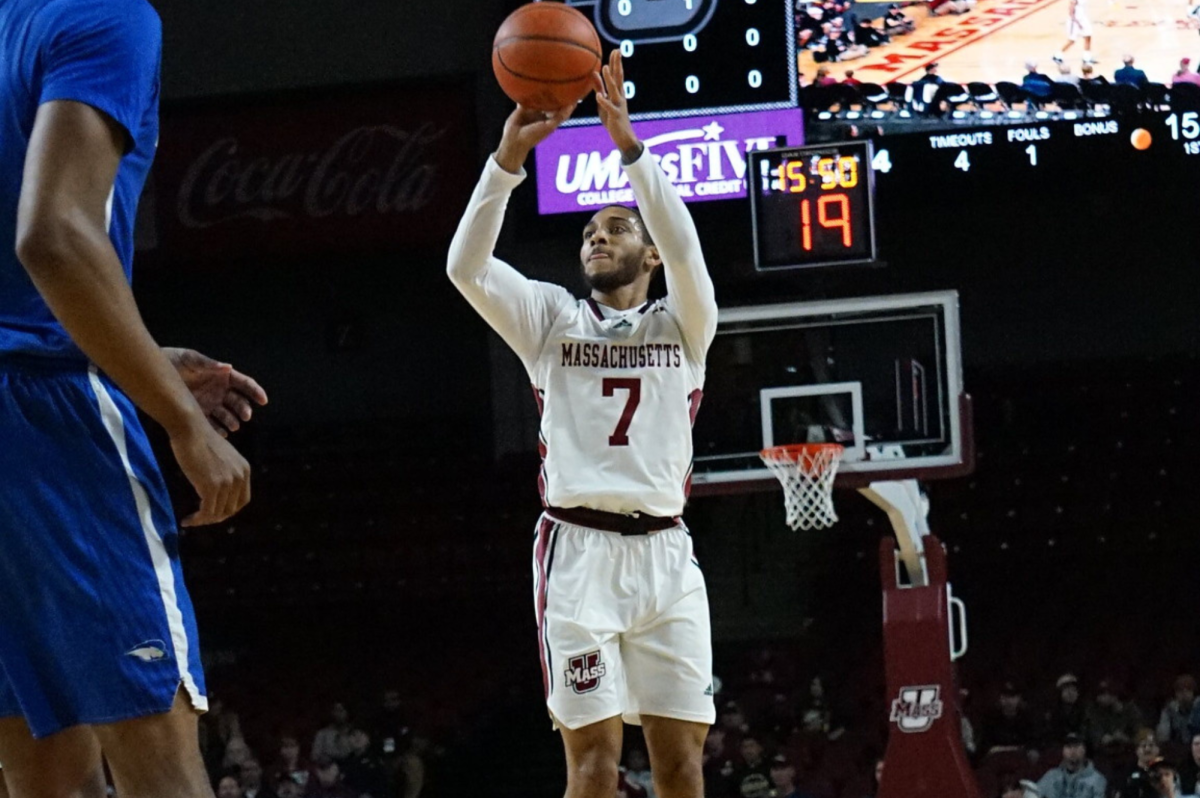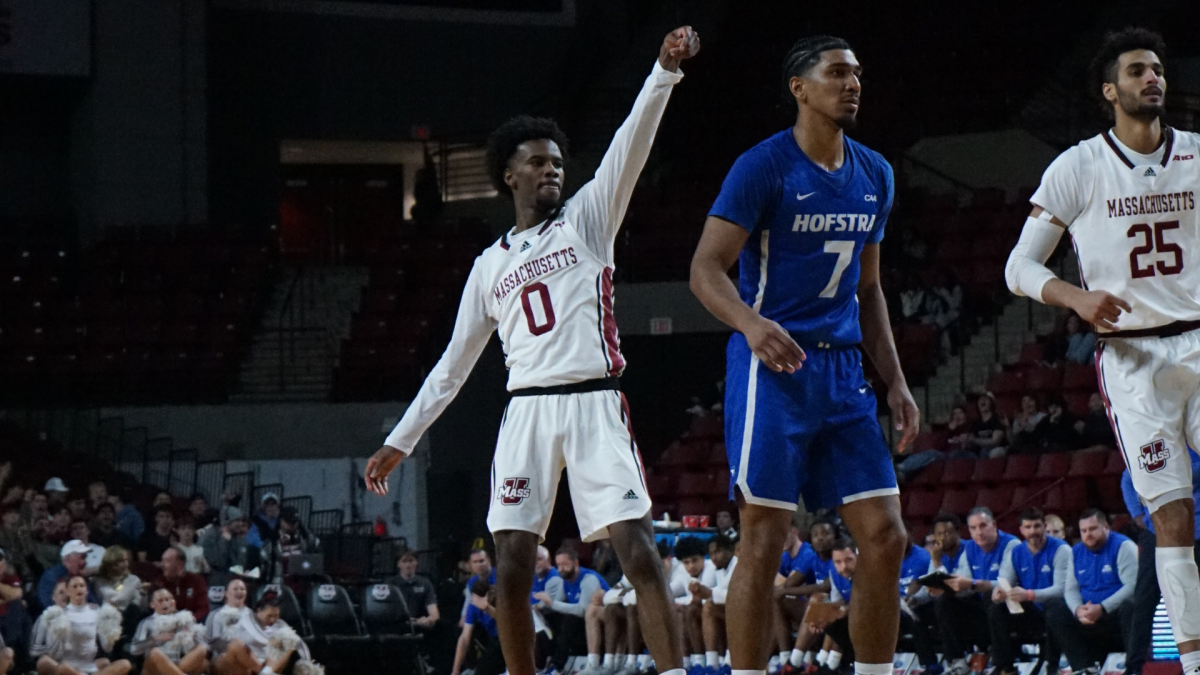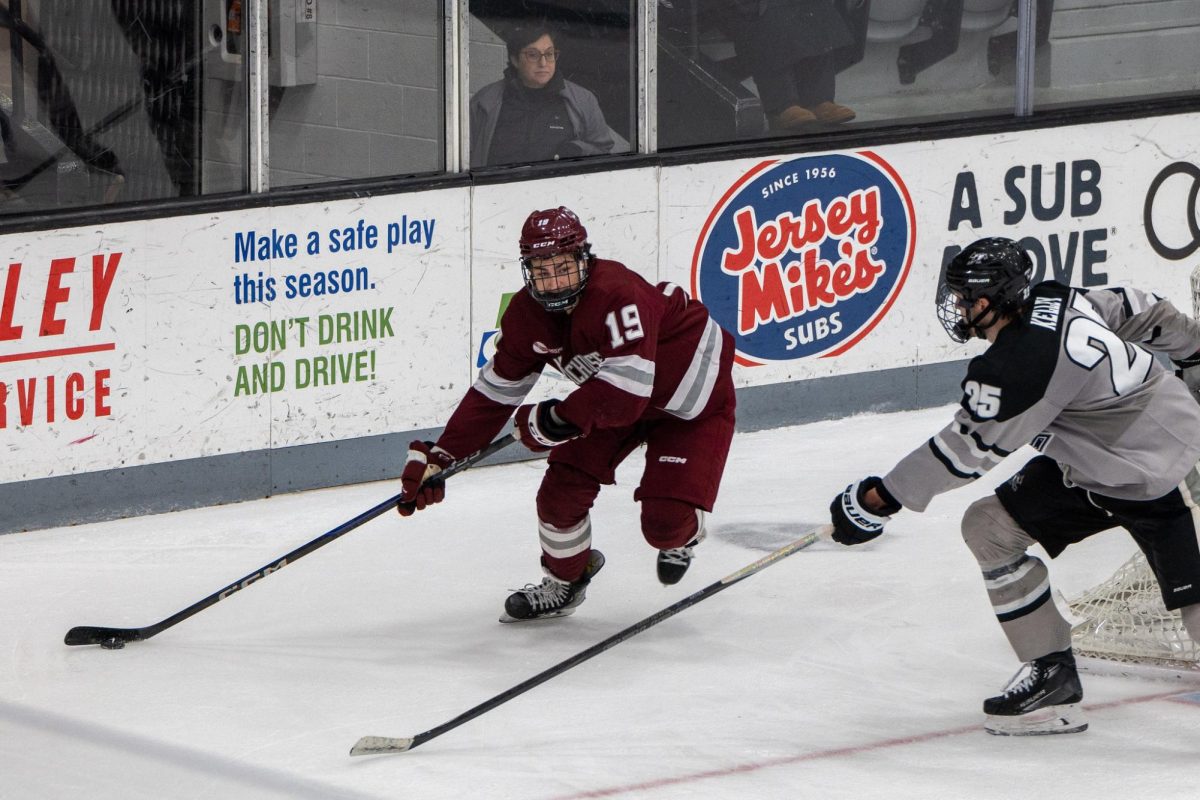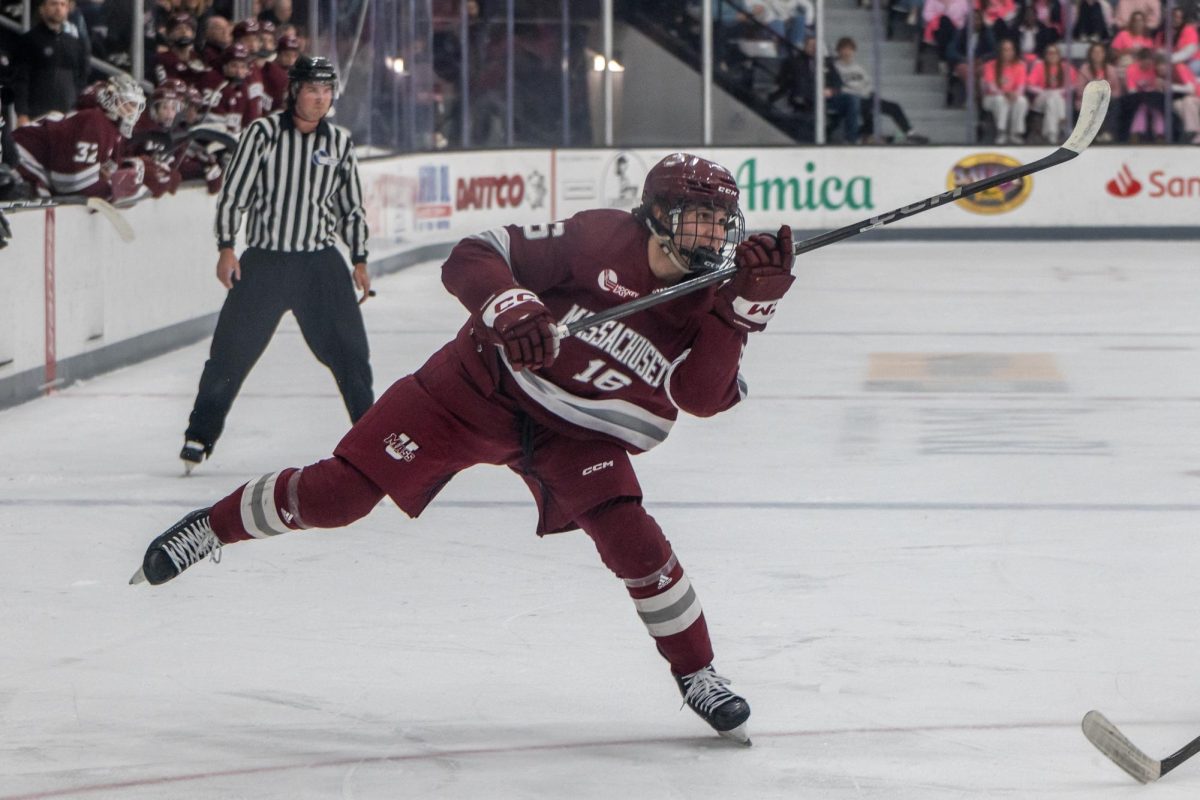
Massachusetts diver Michaela Butler has taken an unorthodox path to the pinnacle of collegiate diving.
Over spring break, Butler became the first All-American diver in UMass’ program history and earned the highest two-day overall point total in Atlantic 10 history at the NCAA Division I Swimming and Diving Championships. She placed fourth in the 1-meter springboard, setting a new school record with her score of 333.45 all while becoming the first Minutewomen swimmer or diver to ever compete at the NCAA Championships.
Butler never dived competitively before enrolling at UMass.
In a world where young athletes are micromanaged at an early age with sights set on collegiate and professional endeavors, Butler rapidly ascended through the collegiate diving ranks with minimal prior experience.
Her success opened the eyes of Minutewomen diving coach Mandy Hixon.
“She picked up the sport really quickly, I was actually pretty surprised at how quickly she came along,” Hixon said. “It’s kind of a long process to teaching diving, and she went through the process and she was great.”
Butler came to UMass not as a diver, but as an accomplished gymnast and track athlete. She had little swimming experience and was more at ease with the up-tempo rhythm of gymnastics than with the slower, steady pace of timing on the diving boards.
In high school, Butler competed at the club level with Cape Cod Gymnastics, reaching the Level 8 and 9 State Championships while also competing in the Level 9 Regionals. She finished her gymnastics career as a Level 10, the highest possible level.
However, her gymnastics career came to a halt her junior year of high school due to numerous injuries, including nerve damage to her arm. Butler quickly picked up track and field, leading Dennis-Yarmouth Regional High School to an Atlantic Coast League Championship her senior year.
Upon entering UMass, Butler planned to walk on with the track team until she was directed towards diving, a sport she immediately took a liking to.
“I picked it up pretty quickly,” Butler said. “It was more a combination of being an athlete and Mandy knowing how to coach me.”
Hixon quickly realized Butler had the desire and the talent to succeed.
“It’s a huge difference, but she was quick to learn,” Hixon said. “There are a lot of things to learn and get comfortable with in diving. Once I would explain something to her and show her something, it didn’t take her long to pick it up.”
However, not everything transferred over from the gym mats to the diving boards.
“The first time I ever jumped off a board I had to plug my nose,” Butler said with a laugh. “The first time I tried to (dive) on my head I did a duck and roll and landed on my back.”
Butler also said “fear is a big factor” in diving, noting she can come very close to hitting her head on the board. Hixon agreed, saying “It took us two weeks to teach her how to spot the board or the water. Once she figured out how to do that, diving isn’t as scary anymore.”
The improvement was undeniable. So when Hixon asked Butler if she wanted to spend the summer after her freshman year training in Amherst with her son Michael, who is a highly touted junior diver, Butler jumped at the chance.
“She asked me if I wanted to stay and practice over the summer and I definitely wanted to do that because I got to watch him do the right thing every day,” Butler said. “That was definitely the most helpful because I could get more one-on-one help.”
Butler spent all but a few weeks of that summer in Amherst training, and Hixon believed that decision was indicative of the type of athlete she is.
“She put in the extra effort to be a really good diver because that’s what she wants to do, she’s a great observer,” Hixon said. “Her making the commitment to staying over the summer is what really changed her diving because there’s so much individual attention. That’s all the difference in her diving, being able to do that.”
For all that work, the momentum of Butler’s diving improvement came to a grinding halt her sophomore year after a devastating ankle injury effectively ended her season. Butler fractured her ankle in a freak accident which required a plate and five screws to heal completely.
The downtime was difficult for Butler, who was sidelined from September to January. Once cleared for activity, she hoped to return to her previous form despite her calf “being the size of her wrist” due to inactivity.
“I wanted to get back in and compete for the Atlantic 10s, but Mandy told me it was a bad idea,” said Butler. “I was pretty upset about it.”
Hixon knew it’d be best to save a year of eligibility while also being able to learn more from observing. Butler was still forced to make changes upon her return to the pool.
“The leg that she broke was her power leg, so we had to change that,” said Hixon. “She also had to learn a completely new hurdle, and that was a big transition.”
The ordeal proved that toughness was never in question for Butler. This year, she competed throughout the NCAA Zones and Championship with a stress fracture in her tibia and two herniated discs in her back.
For Butler, now it’s time to heal and prepare to build upon her success for next year. Hixon believes the opportunities are endless.
“I’m not going to put any limitations on her because she blows those out of the water,” Hixon said. “I don’t want to say she’ll win the NCAA Championships, but we’ll train her to be the best she can be.”
Mark Chiarelli can be reached at [email protected] and followed on Twitter @Mark_Chiarelli.

